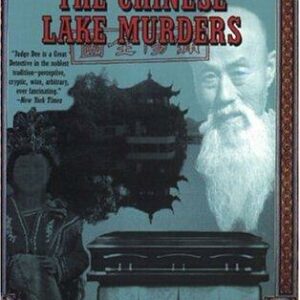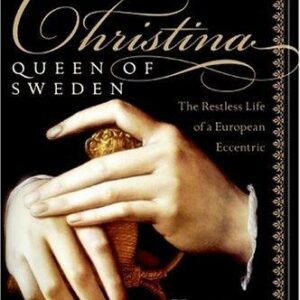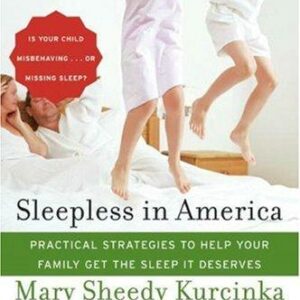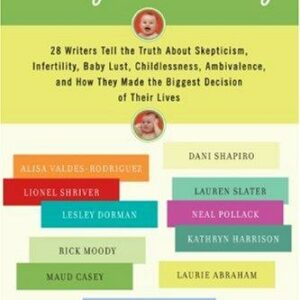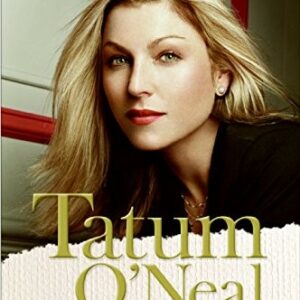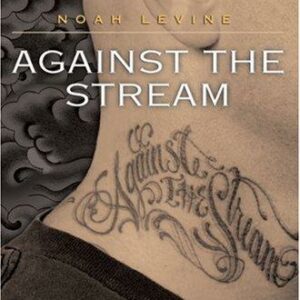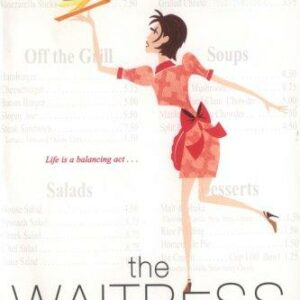Persuasion
$7.00
| Title | Range | Discount |
|---|---|---|
| Trade Discount | 5 + | 25% |
- Description
- Additional information
Description
Jane Austen’s last completed novel, marrying witty social realism to a Cinderella love story
At twenty-seven, Anne Elliot is no longer young and has few romantic prospects. Eight years earlier, she had been persuaded by her friend Lady Russell to break off her engagement to Frederick Wentworth, a handsome naval captain with neither fortune nor rank. What happens when they encounter each other again is movingly told in Jane Austen’s last completed novel. Set in the fashionable societies of Lyme Regis and Bath, Persuasion is a brilliant satire of vanity and pretension, but, above all, it is a love story tinged with the heartache of missed opportunities.
For more than seventy years, Penguin has been the leading publisher of classic literature in the English-speaking world. With more than 1,700 titles, Penguin Classics represents a global bookshelf of the best works throughout history and across genres and disciplines. Readers trust the series to provide authoritative texts enhanced by introductions and notes by distinguished scholars and contemporary authors, as well as up-to-date translations by award-winning translators.
“Critics, especially [recently], value Persuasion highly, as the author’s ‘most deeply felt fiction,’ ‘the novel which in the end the experienced reader of Jane Austen puts at the head of the list.’ . . . Anne wins back Wentworth and wins over the reader; we may, like him, end up thinking Anne’s character ‘perfection itself.’” –from the Introduction by Judith Terry JANE AUSTEN (1775-1817) was extremely modest about her own genius but has become one of English literature’s most famous women writers. She is the author of Sense and Sensibility, Pride and Prejudice, Emma, Mansfield Park and Northanger Abbey.
GILLIAN BEER is King Edward Professor of English at the University of Cambridge and President of Clare Hall.
INTRODUCTIONTwenty-seven-year old Anne Elliot is Austen’s most adult heroine. Eight years before the story proper begins, she is happily betrothed to a naval officer, Frederick Wentworth, but she precipitously breaks off the engagement when persuaded by her friend Lady Russell that such a match is unworthy. The breakup produces in Anne a deep and long-lasting regret. When later Wentworth returns from sea a rich and successful captain, he finds Anne’s family on the brink of financial ruin and his own sister a tenant in Kellynch Hall, the Elliot estate. All the tension of the novel revolves around one question: Will Anne and Wentworth be reunited in their love?
On the most basic level Persuasion is a love story, both interesting and entertaining, rich in intrigue and romance. On a deeper level it examines human foibles and societal flaws. The question of the importance of propriety is raised frequently, as is the issue of appearance versus reality.
Readers of Persuasion will discover Austen’s talents on full display: her skill for delicate, ironic observations on social custom, love, and marriage nor her ability to apply a sharp focus lens to English manners and morals.
ABOUT JANE AUSTENJane Austen was born on December 16, 1775, at Steventon near Basingstoke, the seventh child of the rector of the parish. She lived with her family at Steventon until they moved to Bath when her father retired in 1801. After his death in 1805, she moved around with her mother; in 1809, they settled in Chawton, near Alton, Hampshire. Here she remained, except for a few visits to London, until in May 1817 she moved to Winchester to be near her doctor. There she died on July 18, 1817.
As a girl Jane Austen wrote stories, including burlesques of popular romances. Her works were only published after much revision, four novels being published in her lifetime. These are Sense and Sensibility (1811), Pride and Prejudice (1813), Mansfield Park (1814), and Emma (1816). Two other novels, Northanger Abbey and Persuasion, were published posthumously in 1818 with a biographical notice by her brother, Henry Austen, the first formal announcement of her authorship. Persuasion was written in a race against failing health in 1815-16. She also left two earlier compositions, a short epistolary novel, Lady Susan, and an unfinished novel, The Watsons. At the time of her death, she was working on a new novel, Sanditon, a fragmentary draft of which survives.
DISCUSSION QUESTIONSSir Walter is disturbed because he doesn’t like the way his “heir presumptive” has acted in the past. Why do you think he can’t just leave his money, title, and estate to his daughters?
To what extent do you agree with Sir Walter on the value of rank and consequence?
What do you think led Anne to acquiesce to her family’s wishes? Should families have a say in whom their children marry?
What does the book illustrate about how naval men view women? What assumptions are they making about women?
Captain Wentworth and Anne are constantly in each other’s company. What keeps them from speaking honestly to each other? Would you invite two people who had once been engaged to the same social gathering? Both the Captain and Anne are very polite to each other. How might things be different today?
The Crofts are portrayed as one of the few happily married couples in the novel. What is it about their relationship that seems so different from the other relationships portrayed in the book?
What seems to make Mary happy? Why might women at the time of the novel have focused on such things?
What does Anne’s relationship with Mrs. Smith suggest to you about Anne? How does her father react to these visits? Why?
Austen writes of Captain Benwick: “His reading has done him no harm, for he has fought as well as read.” What does this statement indicate about what was important at this time? To what extent have attitudes changed in our time?
Captain Harville claims men do not quickly forget about the women they love while Anne claims the same for women. Do you believe men and women differ in their capacities to love and in remaining true to the one they love?
Anne believes she was right to be “persuaded” by Lady Russell not to marry Captain Wentworth when he proposed years earlier. Explain her reasoning. Do you agree with her?
Austen wrote Persuasion as her health was failing, hurrying to finish it before her death. Do you find the novel’s narrative carries any sense of urgency or sentimentality, or any other indication of what the author herself was going through as she wrote it?
What was Jane Austen most critical of in her society? What are you most critical of in the modern world?
Chapter I Sir Walter Elliot, of Kellynch Hall, in Somersetshire, was a man who,for his own amusement, never took up any book but the Baronetage;there he found occupation for an idle hour, and consolation in adistressed one; there his faculties were roused into admiration andrespect, by contemplating the limited remnant of the earliest patents;there any unwelcome sensations, arising from domestic affairschanged naturally into pity and contempt. As he turned overthe almost endless creations of the last century—and there,if every other leaf were powerless, he could read his own historywith an interest which never failed—this was the page at whichthe favourite volume always opened:
ELLIOT OF KELLYNCH HALL.
Walter Elliot, born March 1, 1760, married, July 15, 1784, Elizabeth,daughter of James Stevenson, Esq. of South Park, in the county ofGloucester, by which lady (who died 1800) he has issue Elizabeth,born June 1, 1785; Anne, born August 9, 1787; a still-born son,November 5, 1789; Mary, born November 20, 1791.
Precisely such had the paragraph originally stood from the printer’s hands;but Sir Walter had improved it by adding, for the information ofhimself and his family, these words, after the date of Mary’s birth—”Married, Dec 16, 1810, Charles, son and heir of CharlesMusgrove, Esq. of Uppercross, in the county of Somerset,”—and by inserting most accurately the day of the month on whichhe had lost his wife.
Then followed the history and rise of the ancient and respectable family,in the usual terms: how it had been first settled in Cheshire;how mentioned in Dugdale—serving the office of High Sheriff,representing a borough in three successive parliaments,exertions of loyalty, and dignity of baronet, in the first yearof Charles II, with all the Marys and Elizabeths they had married;forming altogether two handsome duodecimo pages, and concluding withthe arms and motto:”Principal seat, Kellynch Hall, in the countyof Somerset,” and Sir Walter’s hand-writing again in this finale:
“Heir presumptive, William Walter Elliot, Esq., great grandson ofthe second Sir Walter.”
Vanity was the beginning and the end of Sir Walter Elliot’s character;vanity of person and of situation. He had been remarkably handsomein his youth; and, at fifty-four, was still a very fine man.Few women could think more of their personal appearance than he did;nor could the valet of any new made lord be more delighted withthe place he held in society. He considered the blessing of beautyas inferior only to the blessing of a baronetcy; and the Sir Walter Elliot,who united these gifts, was the constant object of his warmest respectand devotion.
His good looks and his rank had one fair claim on his attachment;since to them he must have owed a wife of very superior characterto any thing deserved by his own. Lady Elliot had been an excellent woman,sensible and amiable; whose judgement and conduct, if they might bepardoned the youthful infatuation which made her Lady Elliot,had never required indulgence afterwards.—She had humoured,or softened, or concealed his failings, and promoted his realrespectability for seventeen years; and though not the very happiestbeing in the world herself, had found enough in her duties, her friends,and her children, to attach her to life, and make it no matter ofindifference to her when she was called on to quit them. —Three girls, the two eldest sixteen and fourteen, was an awful legacyfor a mother to bequeath; an awful charge rather, to confide tothe authority and guidance of a conceited, silly father.She had, however, one very intimate friend, a sensible, deserving woman,who had been brought, by strong attachment to herself, to settleclose by her, in the village of Kellynch; and on her kindness and advice,Lady Elliot mainly relied for the best help and maintenance ofthe good principles and instruction which she had been anxiouslygiving her daughters.
This friend, and Sir Walter, did not marry, whatever might have beenanticipated on that head by their acquaintance. —Thirteen yearshad passed away since Lady Elliot’s death, and they were stillnear neighbours and intimate friends; and one remained a widower,the other a widow.
That Lady Russell, of steady age and character, and extremelywell provided for, should have no thought of a second marriage,needs no apology to the public, which is rather apt to be unreasonablydiscontented when a woman does marry again, than when she does not;but Sir Walter’s continuing in singleness requires explanation.—Be it known then, that Sir Walter, like a good father, (having met withone or two private disappointments in very unreasonable applications)prided himself on remaining single for his dear daughters’ sake.For one daughter, his eldest, he would really have given up any thing,which he had not been very much tempted to do. Elizabeth had succeeded,at sixteen, to all that was possible, of her mother’s rightsand consequence; and being very handsome, and very like himself,her influence had always been great, and they had gone on togethermost happily. His two other children were of very inferior value.Mary had acquired a little artificial importance, by becomingMrs Charles Musgrove; but Anne, with an elegance of mind and sweetnessof character, which must have placed her high with any peopleof real understanding, was nobody with either father or sister;her word had no weight, her convenience was always to give way;—she was only Anne.
To Lady Russell, indeed, she was a most dear and highly valuedgod-daughter, favourite, and friend. Lady Russell loved them all;but it was only in Anne that she could fancy the mother to revive again.
A few years before, Anne Elliot had been a very pretty girl,but her bloom had vanished early; and as even in its height,her father had found little to admire in her, (so totally differentwere her delicate features and mild dark eyes from his own);there could be nothing in them, now that she was faded and thin,to excite his esteem. He had never indulged much hope, he had now none,of ever reading her name in any other page of his favourite work.All equality of alliance must rest with Elizabeth; for Mary had merelyconnected herself with an old country family of respectability andlarge fortune, and had therefore given all the honour and received none:Elizabeth would, one day or other, marry suitably.
It sometimes happens, that a woman is handsomer at twenty-nine thanshe was ten years before; and, generally speaking, if there has beenneither ill health nor anxiety, it is a time of life at which scarcely anycharm is lost. It was so with Elizabeth, still the same handsomeMiss Elliot that she had begun to be thirteen years ago; and Sir Waltermight be excused, therefore, in forgetting her age, or, at least,be deemed only half a fool, for thinking himself and Elizabethas blooming as ever, amidst the wreck of the good looks of every body else;for he could plainly see how old all the rest of his family andacquaintance were growing. Anne haggard, Mary coarse, every facein the neighbourhood worsting; and the rapid increase of the crow’s footabout Lady Russell’s temples had long been a distress to him.
Elizabeth did not quite equal her father in personal contentment.Thirteen years had seen her mistress of Kellynch Hall, presiding anddirecting with a self-possession and decision which could never have giventhe idea of her being younger than she was. For thirteen years hadshe been doing the honours, and laying down the domestic law at home,and leading the way to the chaise and four, and walking immediately afterLady Russell out of all the drawing-rooms and dining-rooms in the country.Thirteen winters’ revolving frosts had seen her opening every ballof credit which a scanty neighbourhood afforded; and thirteen springsshewn their blossoms, as she travelled up to London with her father,for a few weeks’ annual enjoyment of the great world. She hadthe remembrance of all this; she had the consciousness of beingnine-and-twenty to give her some regrets and some apprehensions.She was fully satisfied of being still quite as handsome as ever;but she felt her approach to the years of danger, and would have rejoicedto be certain of being properly solicited by baronet-blood withinthe next twelvemonth or two. Then might she again take upthe book of books with as much enjoyment as in her early youth,but now she liked it not. Always to be presented with the date ofher own birth and see no marriage follow but that of a youngest sister,made the book an evil; and more than once, when her father had left itopen on the table near her, had she closed it, with averted eyes,and pushed it away.
She had had a disappointment, moreover, which that book, and especially the history of her own family, must ever present the remembrance of. The heir presumptive, the very William Walter Elliot, Esq., whose rights had been so generously supported by her father, had disappointed her.
She had, while a very young girl, as soon as she had known him to be,in the event of her having no brother, the future baronet,meant to marry him, and her father had always meant that she should.He had not been known to them as a boy; but soon after Lady Elliot’s death, Sir Walter had sought the acquaintance, and though his overtureshad not been met with any warmth, he had persevered in seeking it,making allowance for the modest drawing-back of youth; and, in one oftheir spring excursions to London, when Elizabeth was in her first bloom, Mr Elliot had been forced into the introduction.
He was at that time a very young man, just engaged in the study of the law; and Elizabeth found him extremely agreeable, and every plan in his favour was confirmed. He was invited to Kellynch Hall; he was talked of and expected all the rest of the year; but he never came. The following spring he was seen again in town, found equally agreeable, again encouraged, invited, and expected, and again he did not come; and the next tidings were that he was married. Instead of pushing his fortune in the line marked out for the heir of the house of Elliot, he had purchased independence by uniting himself to a rich woman of inferior birth.
Sir Walter has resented it. As the head of the house, he felt thathe ought to have been consulted, especially after taking the young manso publicly by the hand: “For they must have been seen together,”he observed, “once at Tattersal’s, and twice in the lobby ofthe House of Commons.” His disapprobation was expressed, but apparently very little regarded. Mr Elliot had attempted no apology, and shewn himself as unsolicitous of being longer noticed by the family, as Sir Walter considered him unworthy of it: all acquaintance between them had ceased.
This very awkward history of Mr Elliot was still, after an intervalof several years, felt with anger by Elizabeth, who had liked the manfor himself, and still more for being her father’s heir, and whosestrong family pride could see only in him, a proper match for Sir WalterElliot’s eldest daughter. There was not a baronet from A to Z whomher feelings could have so willingly acknowledged as an equal.Yet so miserably had he conducted himself, that though she wasat this present time (the summer of 1814) wearing black ribbonsfor his wife, she could not admit him to be worth thinking of again.The disgrace of his first marriage might, perhaps, as there wasno reason to suppose it perpetuated by offspring, have been got over,had he not done worse; but he had, as by the accustomary interventionof kind friends, they had been informed, spoken most disrespectfullyof them all, most slightingly and contemptuously of the very bloodhe belonged to, and the honours which were hereafter to be his own.This could not be pardoned.
Such were Elizabeth Elliot’s sentiments and sensations; such the caresto alloy, the agitations to vary, the sameness and the elegance,the prosperity and the nothingness of her scene of life—such the feelings to give interest to a long, uneventful residence in one country circle, to fill the vacancies which there were no habitsof utility abroad, no talents or accomplishments for home, to occupy.
But now, another occupation and solicitude of mind was beginning to beadded to these. Her father was growing distressed for money.She knew, that when he now took up the Baronetage, it was to drivethe heavy bills of his tradespeople, and the unwelcome hints ofMr Shepherd, his agent, from his thoughts. The Kellynch property was good, but not equal to Sir Walter’s apprehension of the state requiredin its possessor. While Lady Elliot lived, there had been method,moderation, and economy, which had just kept him within his income;but with her had died all such right-mindedness, and from that periodhe had been constantly exceeding it. It had not been possiblefor him to spend less; he had done nothing but what Sir Walter Elliotwas imperiously called on to do; but blameless as he was, he wasnot only growing dreadfully in debt, but was hearing of it so often,that it became vain to attempt concealing it longer, even partially,from his daughter. He had given her some hints of it the last springin town; he had gone so far even as to say, “Can we retrench?Does it occur to you that there is any one article in whichwe can retrench?” —and Elizabeth, to do her justice, had, in the firstardour of female alarm, set seriously to think what could be done,and had finally proposed these two branches of economy: to cut offsome unnecessary charities, and to refrain from new furnishingthe drawing-room; to which expedients she afterwards addedthe happy thought of their taking no present down to Anne,as had been the usual yearly custom. But these measures,however good in themselves, were insufficient for the real extentof the evil, the whole of which Sir Walter found himself obligedto confess to her soon afterwards. Elizabeth had nothing to proposeof deeper efficacy. She felt herself ill-used and unfortunate,as did her father; and they were neither of them able to deviseany means of lessening their expenses without compromising their dignity, or relinquishing their comforts in a way not to be borne.
There was only a small part of his estate that Sir Walter could dispose of; but had every acre been alienable, it would have made no difference. He had condescended to mortgage as far as he had the power,but he would never condescend to sell. No; he would never disgracehis name so far. The Kellynch estate should be transmitted wholeand entire, as he had received it.
Their two confidential friends, Mr Shepherd, who lived in the neighbouring market town, and Lady Russell, were called to advise them; and both father and daughter seemed to expect that something should be struck out by one or the other to remove their embarrassmentsand reduce their expenditure, without involving the loss ofany indulgence of taste or pride. US
Additional information
| Weight | 7.6 oz |
|---|---|
| Dimensions | 0.6400 × 5.1000 × 7.7700 in |
| ISBN-13 | |
| Imprint | |
| Format | |
| Author | |
| Audience | |
| BISAC | |
| Subjects | classic books for kids age 9 12, persuasion book, jane austen persuasion, vintage classics, jane austin, persuasion book jane austen, sense and sensibility book, pride and prejudice book hardcover, pride and prejudice jane austen, emma jane austen, persuasion jane austen, jane austen book set, jane austen books, FIC027070, jane austen gifts, tiktok, penguin clothbound classics, penguin hardcover classics, classics books, penguin classics, Austen, Persuasion, Mansfield Park, Jane Austen, booktok, FIC019000, classics, romance, classic |



